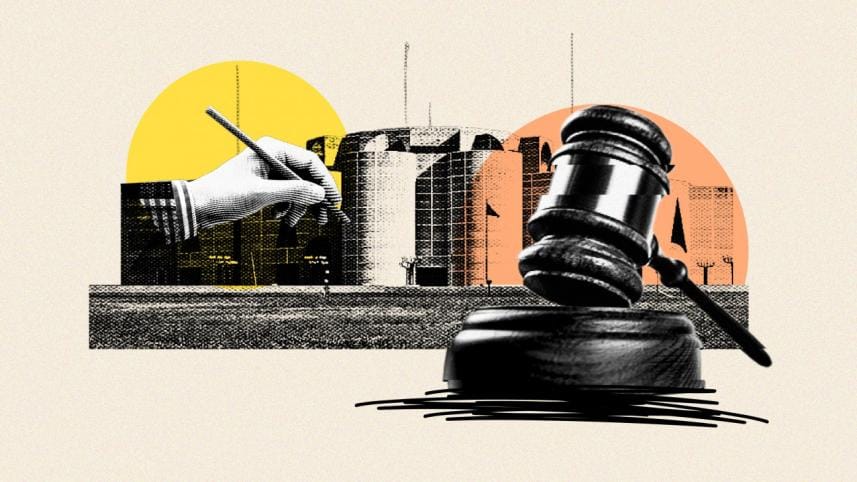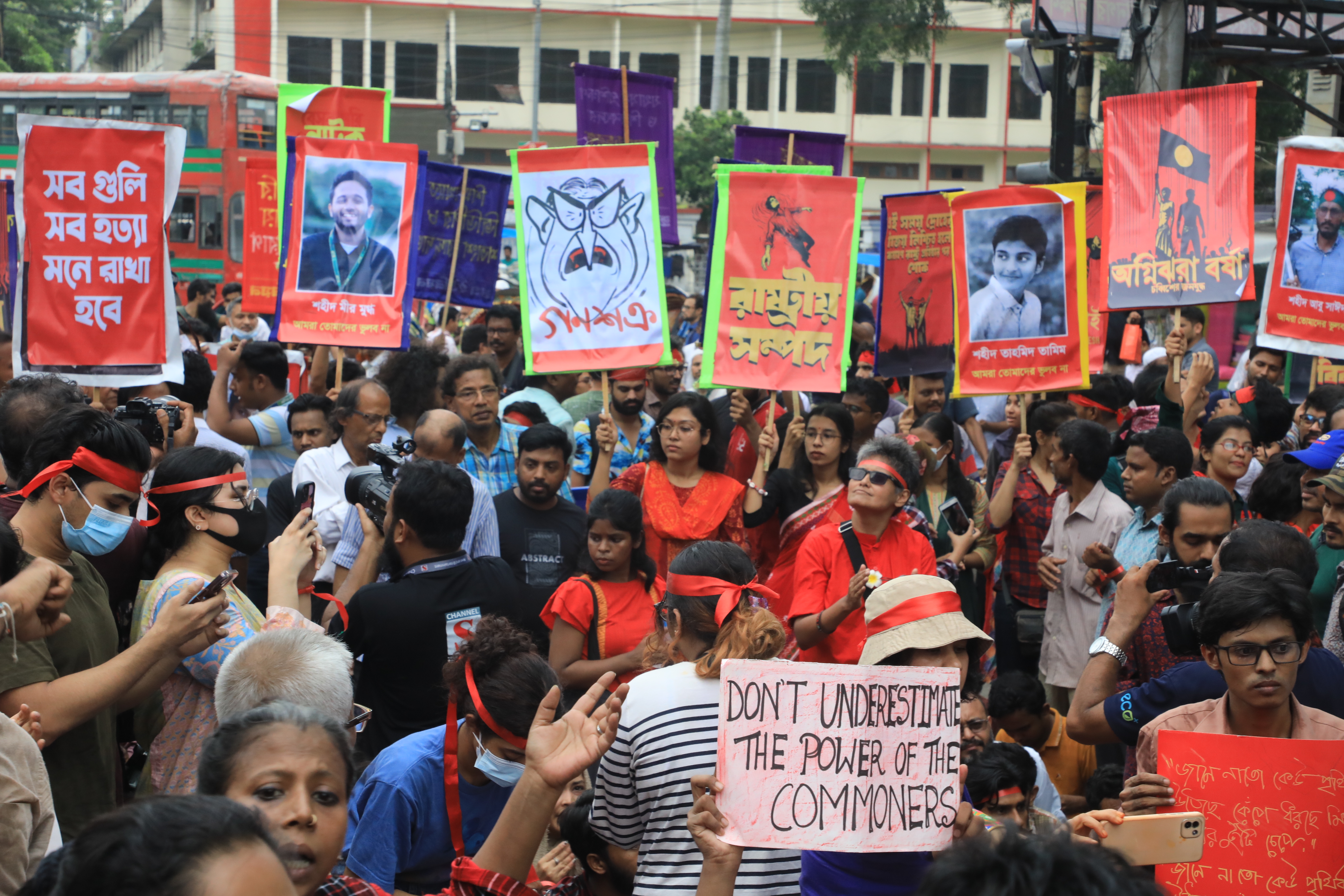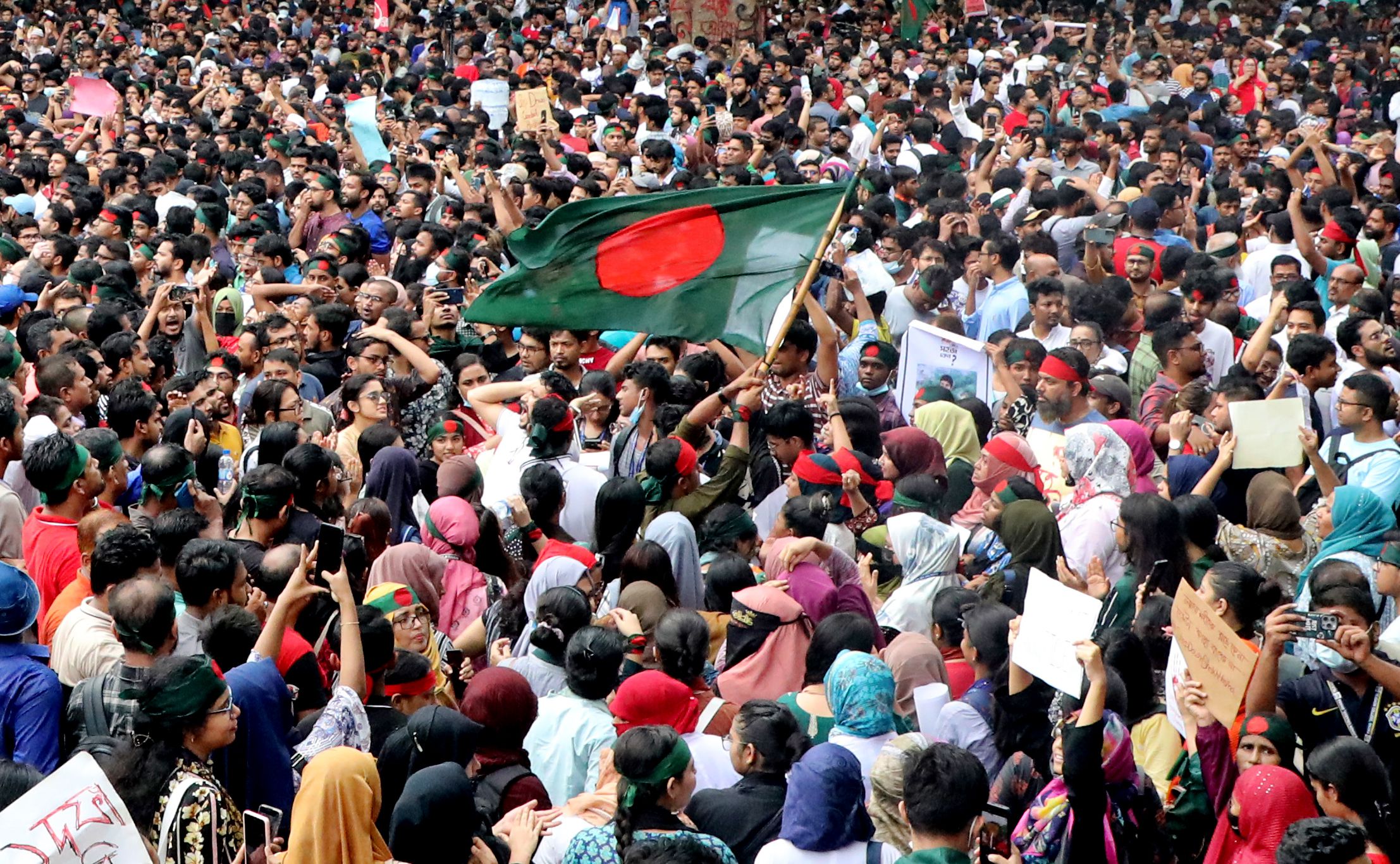Proposals for a balanced government

The debates about Bangladesh's forthcoming constitution have been lively, involving many participants. From attorneys specialised in constitutional law to hybrid journalist-political science professors, opinion contributors, political leaders, and student activists to the common masses, the discussions have been rich and varied. Despite the controversies in the details, there is a significant development and emergence of consensus on some fundamental principles. The primary focus of these principles is the crucial role of the constitution in providing guardrails against autocracy and kleptocracy, ensuring the rights and freedoms of the people. I have contributed to these debates through several TV and online talk shows, sharing my perspective as an ordinary citizen and observing the comments of people from all walks of life. Based on these discourses, I am presenting eleven theses on the constitution of Bangladesh as a safeguard against autocracy.
1) The proposal advocates for establishing three independent branches of government: the executive, legislative, and judiciary. This structural change is anticipated to foster a more balanced and accountable governance system, a key factor in the fight against autocracy.
2) The executive branch will be shared by the president and the prime minister. A vice president will assist the president. The president and vice president, who will be on the same panel, will be directly elected every five years by a general election. They will directly control defence, national security, and foreign affairs. The prime minister, on the other hand, will be elected by the parliament and exercise control over all domestic issues and ministries. The parliament members will be elected by a general election every five years. The president, vice president, and the prime minister will have two-term limits, consecutive or otherwise.
3) The parliament will have 300 members, 150 of whom the local constituents will elect as geographical representatives. The remaining 150 will be elected in five-member groups based on proportional representation. The members of the parliament will elect the prime minister and have the right to vote in the parliament as they like on any legislation except no-confidence and the budget, for which they will be bound to a party-line vote. The parliament will also elect the speaker by a simple majority vote.
4) There will be an upper house named the senate with 100 senators. Fifty will be elected from various districts or groups of districts by a general election. The parliament will select 50 from the different professional groups. The vice president will preside over the senate and can only cast a tie-breaking vote in the senate.
5) The prime minister and his/her cabinet will initiate the annual budget, which must be approved by a majority vote in parliament and ratified by a majority vote in the senate. A party-line vote is required in both the parliament and the senate. The president has the final authority to sign the budget bill before execution. If there is a deadlock, appropriate reconciliation is required.
6) The judicial branch will be free from the control of the prime minister and the law ministry. The president will nominate the chief justice and appellate judges, which should be approved by a 60 percent vote of the senate. All other judges and magistrates will be appointed by a Judicial Service Commission, which will be nominated by the chief justice and be approved by the president. The judicial service council will make appointments, approve promotions, and provide housing and other compensations for judges, magistrates, and employees. The annual budget appropriation for the judiciary will be the president's responsibility. Once allocated, there will be no interference from the president, the prime minister, or the parliament.
7) The parliament can initiate the impeachment of the president, chief justice, or appellate justices by a 60 percent vote of the parliament. The senate can approve and execute the impeachment by a 75 percent vote.
8) At the end of the parliament's tenure, an interim government consisting of the chief adviser to the president and other advisers will take over for three months to conduct a fair, participatory, and inclusive general election. The chief justice of the judiciary will be the chief adviser. The political parties will select the advisers based on the proportional votes they received in the preceding general election.
9) An Election Commission consisting of one chief commissioner and two commissioners will be selected for five years by a committee made of the prime minister, the leader of the opposition in the parliament, the majority leader of the senate, the minority leader of the senate, and the vice president. The final approval by the president is required. All the agencies, secretariats, and law-enforcing authorities will assist the Election Commission. CCTV cameras must be installed to conduct the election. The armed forces, with temporary magistracy power and the assistance of law enforcement agencies, will supervise the smooth operation of the voting process.
10) A five-year Anti-Corruption Commission will be formed by a committee consisting of the prime minister, the leader of the opposition in the parliament, the majority leader of the senate, the minority leader of the senate, and the vice president. The president's final approval is required. This commission will have independent budget appropriation sanctioned in the annual budget.
11) Political parties should be registered. They must have guardrails that guarantee the internal practice of democracy, such as term limits, anti-nepotism, annual conventions, and an appropriate financial statement.
These are a few ideas that could be debated among others to prevent autocracy in Bangladesh's polity. We should not be afraid of diversity of thoughts. Dr Yunus's government can charter a draft proposal with the help of the Constitutional Reform Commission by December 31 and then form a Constituent Assembly by a general election. The Constituent Assembly must write the constitution. The next step is to arrange a free, fair, participatory, and inclusive election to transfer power based on the new constitution.
Dr Mostofa Sarwar is professor emeritus at the University of New Orleans, former dean and former vice-chancellor of Delgado Community College, and former commissioner of the governing board of Regional Transit Authority of New Orleans. He can be reached at asarwar2001@yahoo.com.
Views expressed in this article are the author's own.
Follow The Daily Star Opinion on Facebook for the latest opinions, commentaries and analyses by experts and professionals. To contribute your article or letter to The Daily Star Opinion, see our guidelines for submission.




 For all latest news, follow The Daily Star's Google News channel.
For all latest news, follow The Daily Star's Google News channel. 


Comments